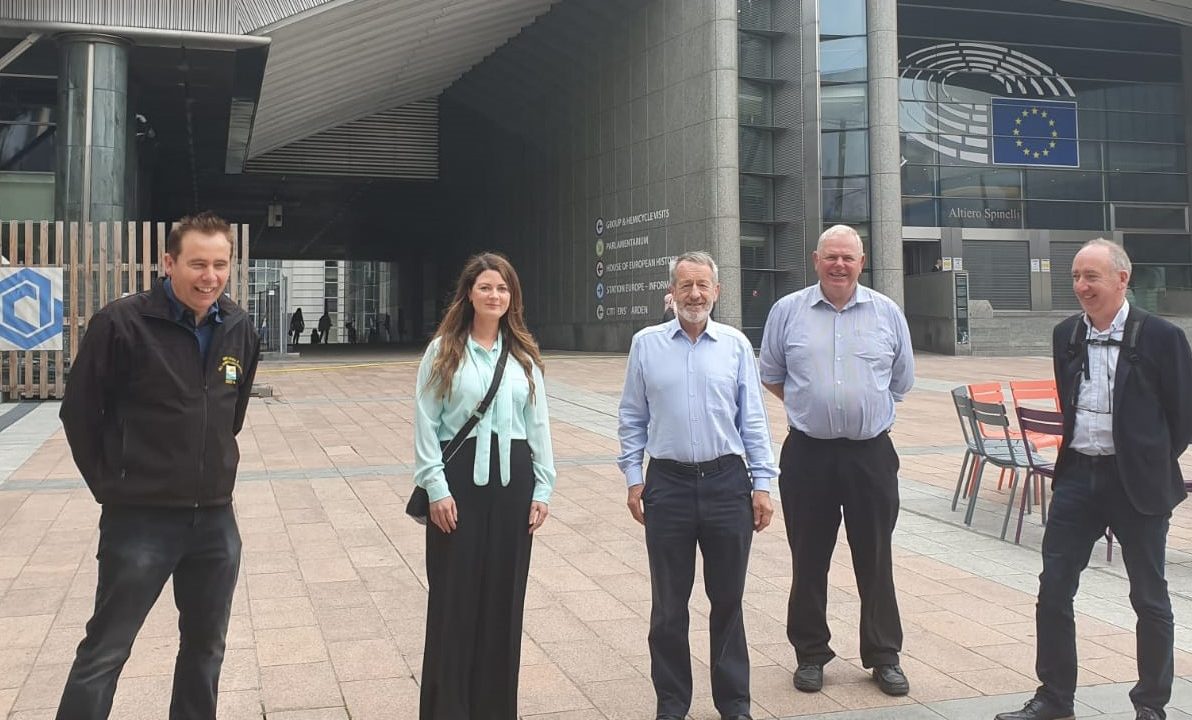Irish farm organisations have been processing news from Brussels as a second day of Common Agricultural Policy (CAP) trilogue negotiations continue, with details emerging of agreements reached, and the issues still to be resolved.
So far, it is understood that consensus has been reached on convergence, eco-schemes and redistributive payments.
But the issue of autonomy in the way we apply the eventual CAP agreement (believed to be imminent) is high on the president of the Irish Creamery Milk Suppliers’ Association (ICMSA), Pat McCormack’s agenda.
“We’re going to discover whether Ireland had the sense to insist on maximum autonomy in terms of overall CAP application, and then we’re going to discover whether Minister McConalogue and his government are really committed to preserving our family farming sector,” he said.
Reiterating the ICMSA’s concern over a “demonstrably flawed” convergence model, its president said:
“It’s not the motive of this model of convergence that we object to, it’s the outcome of this model we object to, where the weight of payment has switched from farming to landowning.
“That’s fundamentally unfair and it’s deeply unpopular with the active farmers who are the engine of the sector and the sector’s exports. They want Ireland to secure and use the necessary autonomy to mitigate the worst aspects of the convergence commitment likely in the final agreement.”
In relation to eco-schemes, he said that the new CAP will likely see lrish farmers face a cut of 25% in their Basic Payment Scheme/Greening payment to fund the eco-schemes, with potentially another 10-15% to fund frontloading/national reserves, etc.
He said this was the “blunt and uncomfortable reality” that some people want to ignore and predicted that it will be a “disaster for family farms throughout Ireland”.
“This CAP should have been the occasion for the EU to face up to the systemic problems in the Union’s food-supply chain and its impact on the environment.
“Instead of doing that, and actually starting to dismantle the absolutely ruinous ‘cheap-food’ policy, the EU has decided to load all responsibility onto its farmers who – it’s now very clear – will be expected to ‘carry the climate-change can’ for both consumers and corporations.
“It’s a failure of policy and a failure of political intelligence,” he concluded.
Meanwhile, the Irish Natura and Hill Farmers Association (INHFA), that has a delegation currently in Brussels, has expressed general satisfaction with the trilogue outcome so far.
Despite seeking 100% convergence, a spokesperson for the association told Agriland that it was “happy that convergence is looking like it will be set at a minimum of 85% with no opt out”.
“The flat-rate eco-scheme is what we wanted, which is fair to all. And the Complementary Redistributive Income Support for Sustainability (CRISS) is mandatory, which is what we were looking for.”
In a letter from the INHFA to Minister for Agriculture, Food and the Marine, Charlie McConalogue this week, the association said it wished to remind the minister that he had a “duty of care to all Irish farmers to ensure a fair standard of living”.
“This duty doesn’t just apply to the 34% of Irish farms that are commercially viable and in the lucrative position of being able to support one or more labour production units on their farms.
“Over the last number of weeks, you have outlined the need for maximum flexibility at member state level in order to have conversations with farmers in setting out the level of support each will receive.
“We fail to understand the rationale behind this as it was our understanding that the development of the CAP Strategic Plan provided the forum for this discussion. If other representative groups failed to inform their members of this process and specific proposals from Brussels, then that is their fault.
“The INHFA has engaged in the process and represented the 73,000 farmers that will gain through what is currently on the table. It is now up to you Minister, you have the opportunity to deliver for the vast majority of farmers through the implementation of progressive proposals on convergence, capping of payments, CRISS and the new eco-scheme.”
